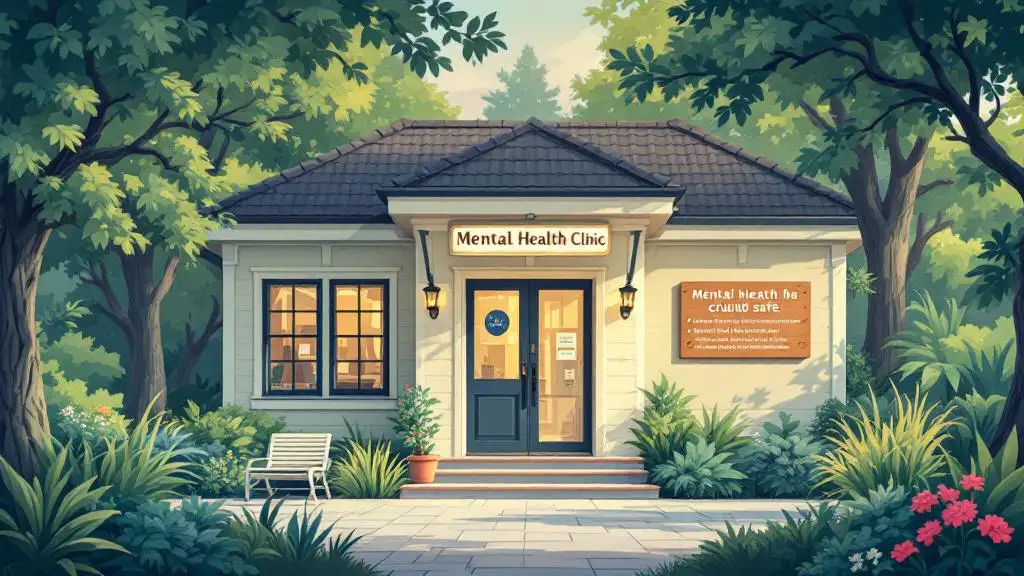Understanding the Critical Role of Follow-Ups in Medication Management
Follow-ups are a cornerstone of effective medication management, ensuring that treatment plans are optimized, safety is maintained, and patient engagement is fostered. Despite their proven benefits, routine follow-up remains underutilized across healthcare settings. This article explores the multifaceted importance of follow-up visits, strategies for effective implementation, and the pivotal role of healthcare professionals in safeguarding patient health.
The Significance of Routine Follow-Ups for Chronic Disease Management
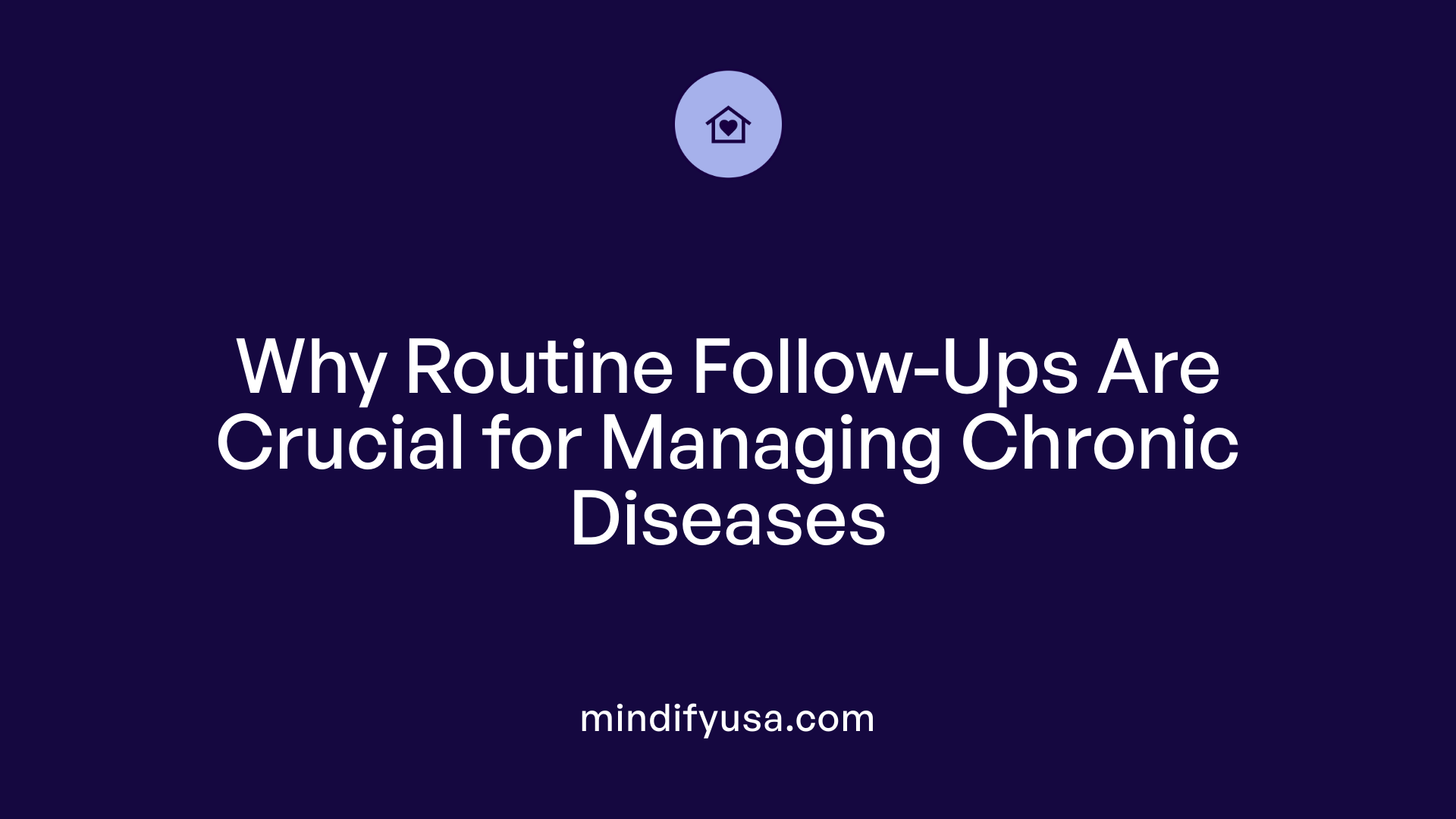
Why is regular follow-up in community pharmacy important?
Routine follow-up should be considered a standard part of community pharmacy practice because it is vital for managing chronic diseases effectively. These appointments are not extraordinary but are essential for monitoring patient health, medication effectiveness, and safety. Regular follow-ups build trust between patients and healthcare providers, encouraging patient engagement and adherence.
Through ongoing monitoring, pharmacists can evaluate whether medications are working as intended, identify side effects early, and make timely adjustments to therapy. This proactive approach helps in achieving better health outcomes and preventing complications. Despite the proven benefits, studies reveal that a significant number of patients, especially those with conditions like diabetes, do not receive adequate follow-up care from pharmacists, often due to barriers like time constraints, workload, and reimbursement issues.
How do follow-ups facilitate ongoing patient education and communication?
Follow-ups are instrumental in maintaining effective communication and continuous education. They provide opportunities for healthcare providers to reinforce important health information, discuss medication routines, and clarify any doubts the patient might have. This ongoing dialogue ensures that patients understand their treatment plan and remain active participants in their healthcare journey.
Effective follow-up methods, such as digital reminders, telehealth, or scheduled visits, can improve engagement. These interactions help identify barriers to adherence, such as side effects or financial constraints, and tailor interventions accordingly.
Patients are also educated about self-care, lifestyle changes, and symptom management during follow-ups. This empowerment encourages healthier behaviors and better long-term health management. Regular contact helps in tracking progress, assessing treatment goals, and making necessary adjustments, ultimately fostering improved health outcomes.
Addressing obstacles to consistent follow-up
Barriers like busy practice environments, limited time, and lack of reimbursement often hinder routine follow-ups. Nonetheless, some pharmacists continue to prioritize follow-up care, demonstrating its value and feasibility even amid challenges.
Innovations in technology, such as automated reminder systems and telehealth platforms, can mitigate these barriers by streamlining scheduling and reducing workload. These tools extend the reach of pharmacists, ensuring patients receive the continuous care necessary to manage chronic conditions effectively.
Overall, integrating routine follow-up into community pharmacy practices enhances medication adherence, safety, and disease control, ultimately improving patient outcomes and healthcare efficiency.
Monitoring and Evaluating Medication Effectiveness and Safety
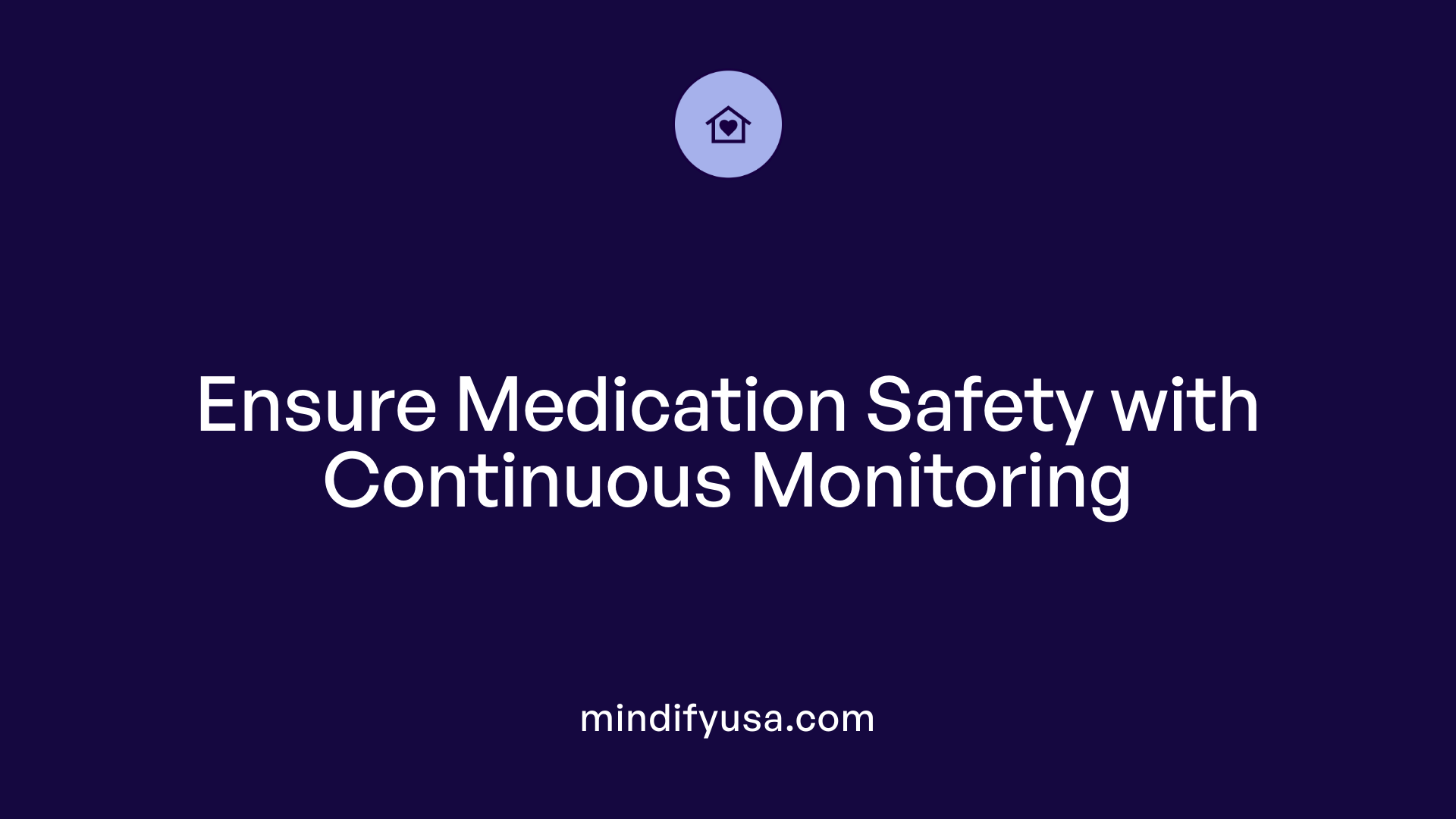 Regular follow-up in community pharmacy settings is fundamental to effective management of chronic diseases such as diabetes. It enables healthcare providers to routinely assess how well medications are working, detect adverse drug reactions, and monitor for signs of toxicity. These visits are critical for tracking patient responses through clinical signs, symptoms, and laboratory results.
Regular follow-up in community pharmacy settings is fundamental to effective management of chronic diseases such as diabetes. It enables healthcare providers to routinely assess how well medications are working, detect adverse drug reactions, and monitor for signs of toxicity. These visits are critical for tracking patient responses through clinical signs, symptoms, and laboratory results.
Why are follow-up evaluations important for improving patient care? Follow-up evaluations are vital for observing patient progress, catching potential complications early, and making necessary adjustments to treatment plans. They promote ongoing communication, ensuring timely interventions that can lead to better health outcomes. Regular follow-ups foster trust between patients and providers, optimize medication effectiveness, and help identify issues early—especially in chronic or preventive care settings.
How do follow-ups facilitate ongoing patient education and communication? Follow-ups support continuous education by providing opportunities for healthcare providers to clarify treatment instructions, discuss medication management, and answer patient questions. They help tailor information to the patient’s evolving condition, fostering adherence and engagement. Utilizing tools like telehealth or automated messaging during follow-ups enhances communication, making it easier for patients to stay connected to their care team. This ongoing dialogue empowers patients with knowledge and confidence in managing their health.
What activities are involved in medication monitoring during follow-ups? Monitoring during follow-up appointments includes evaluating clinical responses, reviewing laboratory data, and assessing for any new problems or side effects. If the medication is ineffective or adverse events are detected, providers may adjust dosages, switch therapies, or implement additional interventions.
The structured approach to follow-up includes tracking patient progress, documenting therapy changes, and ensuring safety parameters are met. When well-organized, these evaluations lead to superior management of medication therapy, minimizing risks while maximizing benefits.
| Monitoring Aspect | Description | Additional Notes |
|---|---|---|
| Response Evaluation | Checking improvement in symptoms and signs | Using clinical and lab data |
| Safety Surveillance | Detecting adverse reactions and toxicity | Regular review and patient feedback |
| Therapy Adjustments | Altering dosages or medications based on data | Aimed at optimizing effect and safety |
| Patient Education and Support | Reinforcing medication adherence and lifestyle tips | Providing resources and counseling |
Effective follow-up strategies not only improve medication safety but also strengthen patient-provider relationships. Technology-enabled tools like SMS alerts and telehealth expand reach, overcome barriers, and facilitate proactive care.
Long-term monitoring is essential for sustaining health gains, preventing hospital readmissions, and enabling timely modifications to therapy. Overall, routine follow-up is a cornerstone of quality healthcare, particularly in managing complex or chronic conditions.
The Role of Pharmacists and Healthcare Professionals in Follow-Up Assessments
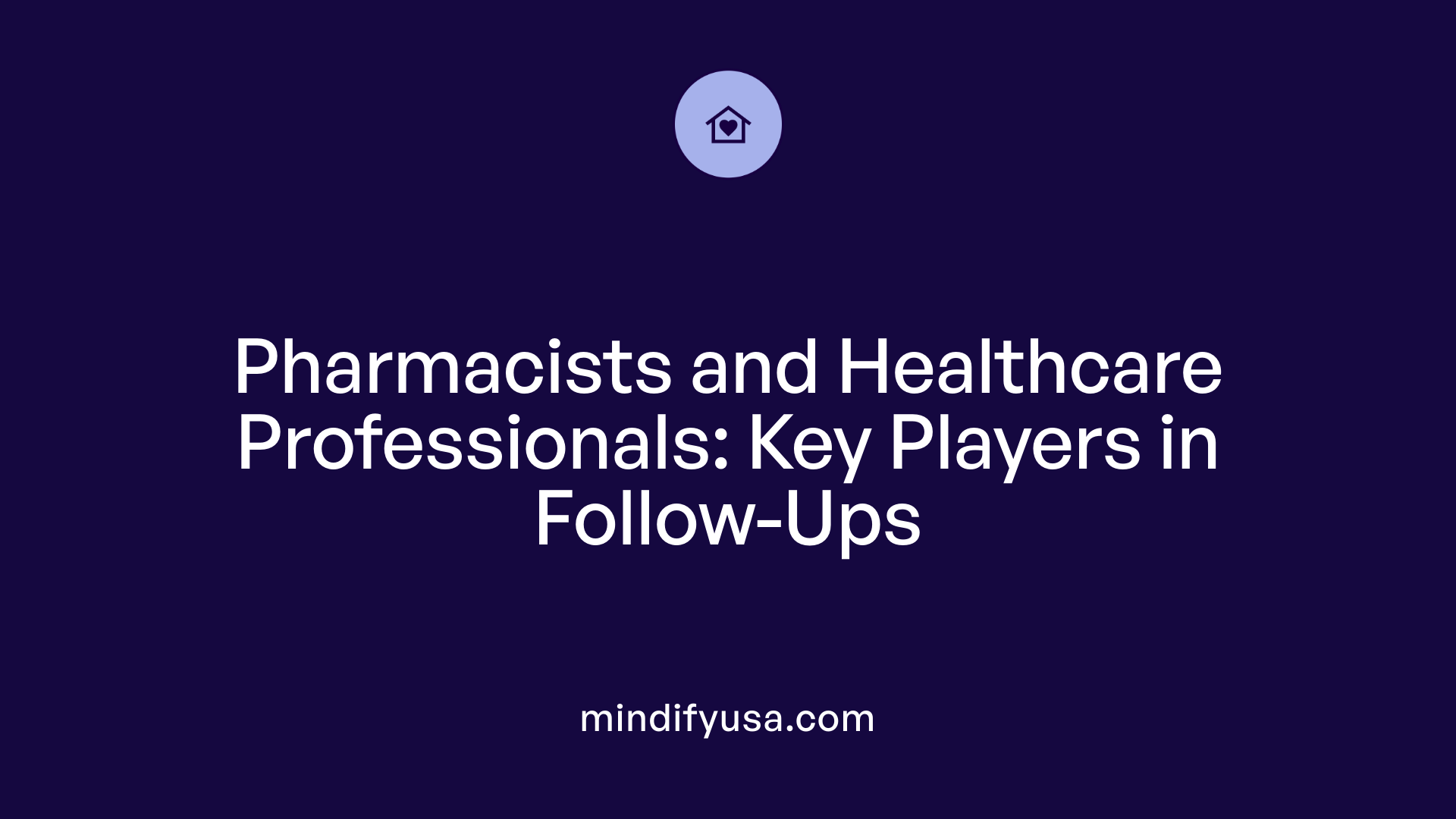
What is the role of healthcare professionals, such as pharmacists, in conducting follow-up assessments?
Pharmacists and other healthcare professionals are essential in routine follow-up activities that support effective management of chronic diseases. Their primary role involves systematically monitoring how well patients adhere to their medication regimens, evaluating clinical outcomes, and promptly identifying any medication-related problems.
Through activities like medication therapy management, medication reconciliation, and patient counseling, pharmacists address barriers to adherence and optimize treatment plans. Regular follow-up allows them to detect issues early, offer tailored interventions, and adjust therapy as needed. This proactive approach improves health outcomes, reduces hospital readmissions, and promotes disease prevention—especially in conditions like diabetes.
Documentation of these interventions is a crucial part of the process. By recording changes, patient responses, and any barriers encountered, pharmacists ensure quality care and facilitate ongoing improvement in patient management. Collaborating closely with the healthcare team—doctors, nurses, and specialists—enables a comprehensive approach to patient health. This teamwork ensures that follow-up assessments are thorough, coordinated, and patient-centered.
In summary, pharmacists’ involvement in follow-up assessments plays a vital role in maintaining medication effectiveness, enhancing safety, and fostering better patient engagement. Through continuous documentation and collaboration, they help achieve better health outcomes and support the overall healthcare system.
Strategies and Best Practices for Conducting Effective Follow-Ups
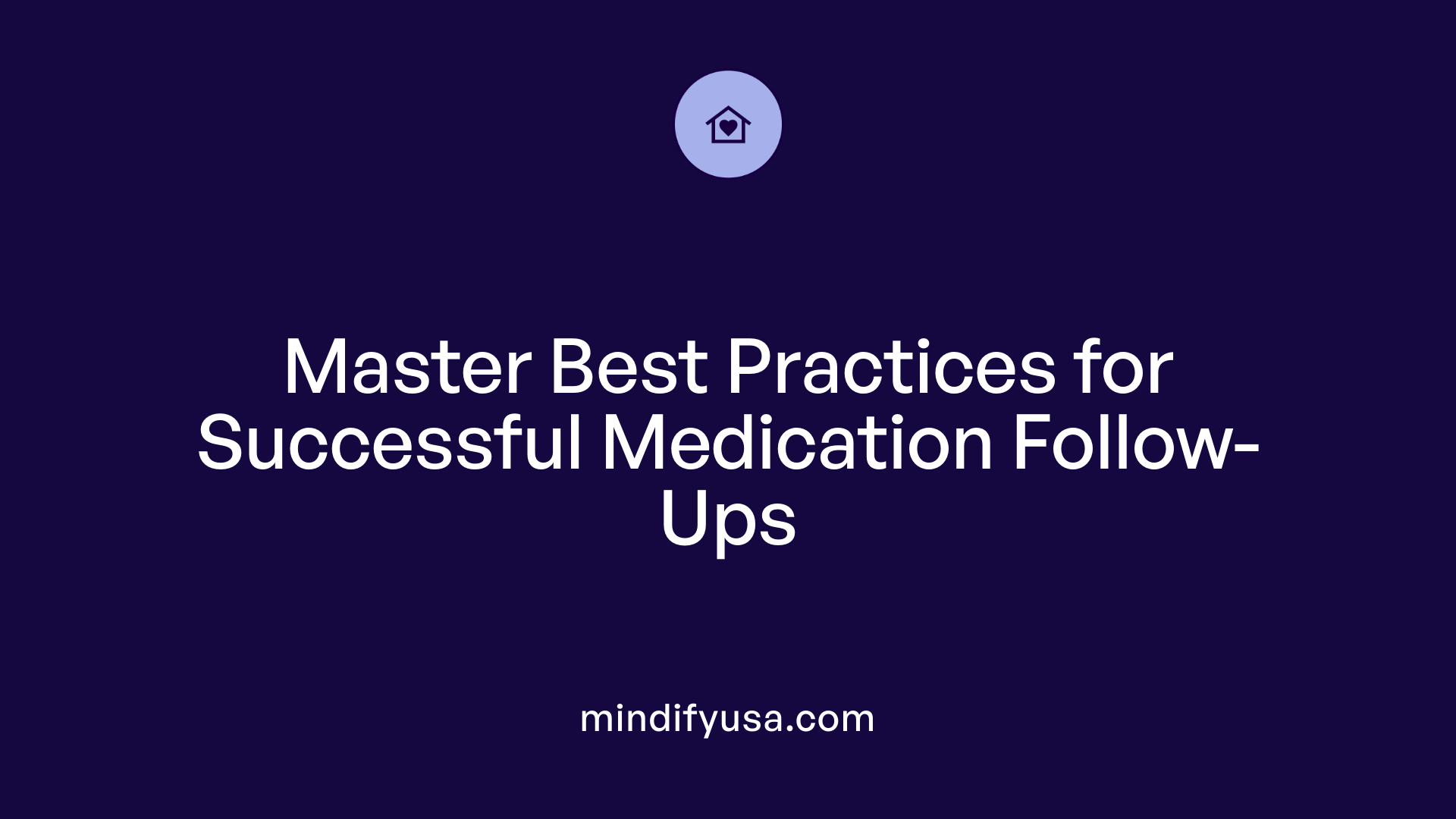
What are best practices for conducting effective follow-up visits in medication management?
Effective follow-up visits are essential to ensure safe and effective medication use. One of the most important aspects is patient education. Healthcare providers should thoroughly explain the purpose of each medication, how to take it correctly, potential side effects, and costs. This knowledge helps improve adherence and safety.
Building strong communication is also vital. Empathy, active listening, and clear explanations create trust and encourage patients to share concerns. Shared decision-making involves patients in their care, making them more likely to follow treatment plans.
Practical tools can support adherence. Medication schedules, pill organizers, and written instructions are helpful resources for patients. Regular medication review, including reconciliation and updates to records, ensures accuracy. It’s also important to assess for side effects or interactions during follow-ups.
Timing and coordination matter. Planning follow-ups at appropriate intervals, coordinating care among different providers, and empowering patients to recognize warning signs enhance safety. Patients should also be educated on who to contact if issues arise.
These practices foster safer medication use, improve health outcomes, and build patient confidence and engagement.
What are the benefits of follow-up appointments after hospitalization or emergency visits in medication management?
Follow-up appointments after hospitalization or emergency visits play a crucial role in medication management. They primarily serve to verify medication reconciliation—checking that prescriptions are accurate and adhered to. This reduces the risk of medication discrepancies and adverse events.
Attending these appointments within the first week after discharge significantly lowers the chances of 30-day hospital readmissions, especially in cases involving complex medical, surgical, or psychiatric conditions.
During these visits, healthcare providers evaluate whether the medications are working as intended, manage any side effects, and address patient concerns. Adjustments to the medication regimen are often necessary to optimize recovery.
Early follow-up also aids in detecting issues like infections, wound complications, or other post-discharge problems. This proactive approach ensures continuity of care and supports patient understanding of their medication routines.
Overall, prompt and regular follow-ups after hospitalization enhance recovery, improve safety, and reduce healthcare costs by preventing avoidable readmissions.
Additional Considerations
| Aspect | Practice | Benefit | Details |
|---|---|---|---|
| Education | Clear instructions, written materials | Better adherence | Helps patients understand medication purpose, proper use, and side effects |
| Timing | Regular, timely follow-ups | Safety and effectiveness | Based on patient needs, often scheduled within the first week after hospital discharge |
| Technology | Reminder systems, telehealth | Increased engagement | SMS alerts, automated calls, virtual visits support adherence |
| Coordination | Team-based approach | Improved outcomes | Involves pharmacists, physicians, nurses ensuring unified care |
| Patient Empowerment | Encourage questions, support | Confidence and compliance | Educate patients on recognizing warning signs and understanding their health condition |
Adopting these strategies ensures that follow-up visits are thorough, patient-centered, and effective at safeguarding medication therapy, ultimately leading to better health outcomes.
The Impact of Follow-Ups on Preventing Complications and Enhancing Medication Safety
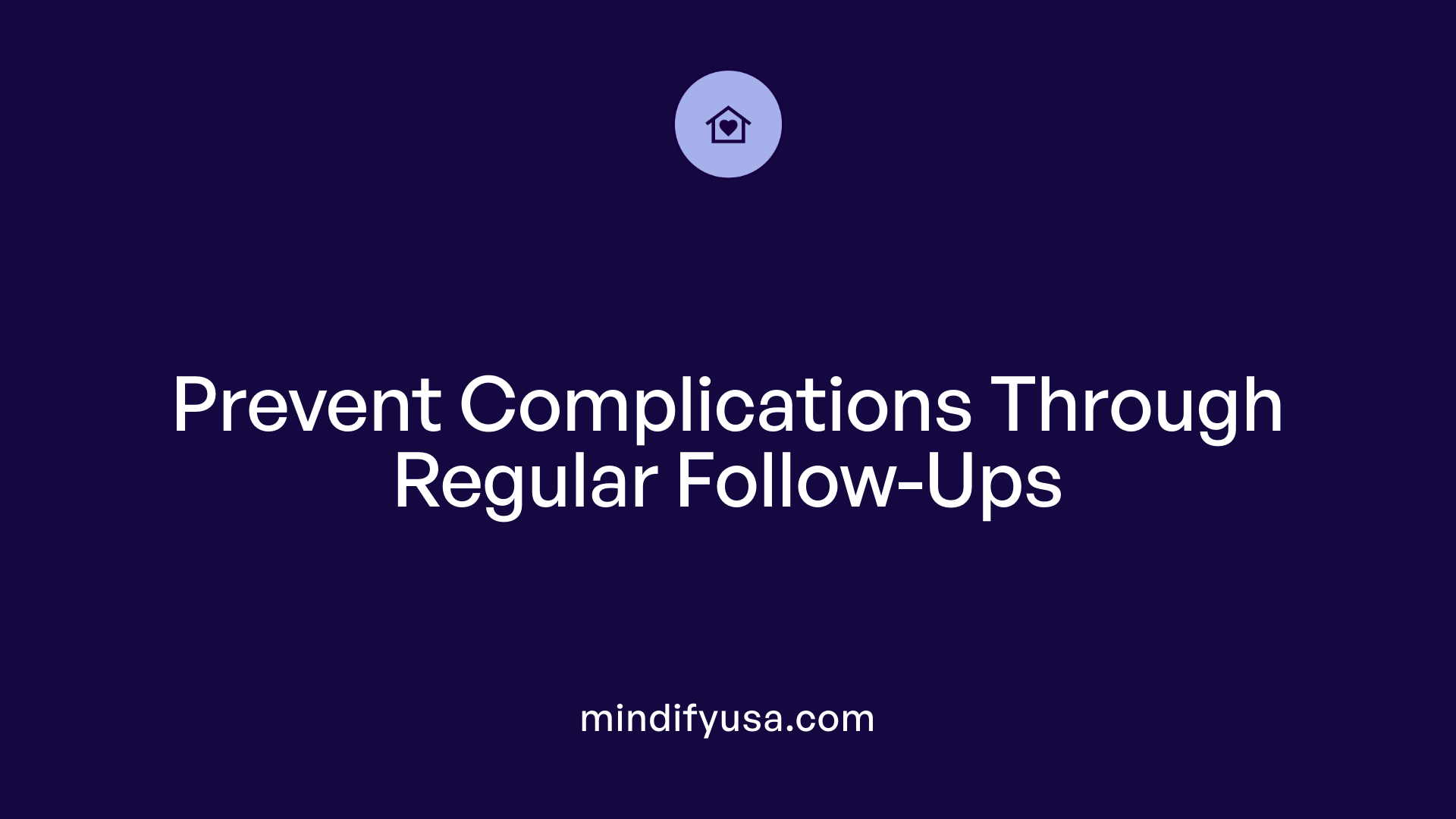
What is the impact of follow-ups on preventing complications and enhancing medication safety?
Regular follow-up visits are vital components of effective healthcare, especially in managing chronic conditions. They enable healthcare providers to continuously monitor the patient’s health status, medication effectiveness, and safety. By doing so, follow-ups facilitate early detection of adverse events or side effects, which can be addressed promptly to prevent serious complications.
During follow-up appointments, systematic medication reconciliation is often performed. This process involves reviewing all medications the patient is taking to ensure accuracy and appropriateness. Medication reconciliation helps identify and correct errors such as omissions, duplications, incorrect dosages, or drug interactions. These discrepancies are common causes of preventable harm and adverse drug events.
Engagement and communication with patients are crucial in safeguarding medication safety. Follow-ups create an opportunity for healthcare providers to reinforce medication instructions, clarify doubts, and assess the patient’s understanding. Patients’ active involvement in discussing their medications, reporting side effects, or concerns enhances adherence and reduces risks.
Incorporating both medication reconciliation and patient communication during follow-up results in a comprehensive approach to medication safety. These strategies help mitigate errors and adverse events, improve adherence, and foster a safer medication use environment. Ultimately, consistent follow-up with attention to medication management contributes to better health outcomes, fewer complications, and increased trust between patients and providers.
Conclusion: The Way Forward in Medication Management
Regular follow-up in community pharmacy settings should become a standard practice rather than an exception. Consistent monitoring helps evaluate medication effectiveness, safety, adherence, and uncovers new drug therapy problems, ultimately leading to improved health outcomes.
Harnessing technology—such as SMS alerts, automated calls, and telehealth—can make follow-up more efficient and accessible. These tools support patients in maintaining their medication schedules and enable healthcare providers to track progress remotely.
Teamwork among healthcare professionals enhances the follow-up process. Collaboration ensures comprehensive care, allowing timely adjustments to treatment plans based on ongoing monitoring.
Encouraging routine follow-ups is essential for promoting patient safety and achieving better results. Building trust through these interactions empowers patients, reduces hospital readmissions, and optimizes healthcare resources.
In conclusion, integrating systematic follow-up procedures, supported by technological innovations and collaborative efforts, will shape the future landscape of medication management—driving safer, more effective patient care.
Fostering Better Health Through Ongoing Follow-Up Care
In conclusion, follow-ups are indispensable in the landscape of medication management, serving as a foundation for patient-centered care, safety, and improved health outcomes. They facilitate continuous assessment of treatment effectiveness, promote adherence, and provide opportunities for education, support, and early intervention. Overcoming barriers such as time constraints and lack of reimbursement requires innovative strategies, including leveraging technology and enhancing healthcare team collaboration. Emphasizing routine follow-up practices and professional involvement, especially from pharmacists, can dramatically reduce medication errors, prevent complications, and foster trustful patient relationships. Moving forward, healthcare systems must prioritize the integration of regular, structured follow-ups into standard care protocols to ensure every patient benefits from safe, effective, and personalized treatment.
References
- Follow-up in community pharmacy should be routine, not extraordinary
- Medication Adherence and Compliance: Recipe for Improving ...
- 5 Ways Effective Follow-Up Helps Improve Patient Adherence
- How to Establish an Effective Patient Follow-Up Protocol
- Importance of Urgent Care Follow-Ups
- Chapter 8. Follow-Up Evaluation | Pharmaceutical Care Practice
- The Importance of Hospital Follow-Up: Ensuring Continued Care ...
- Follow Up Visits Boost Your Health While Saving You Time And ...
- Medication Adherence and Compliance: Recipe for Improving ...

